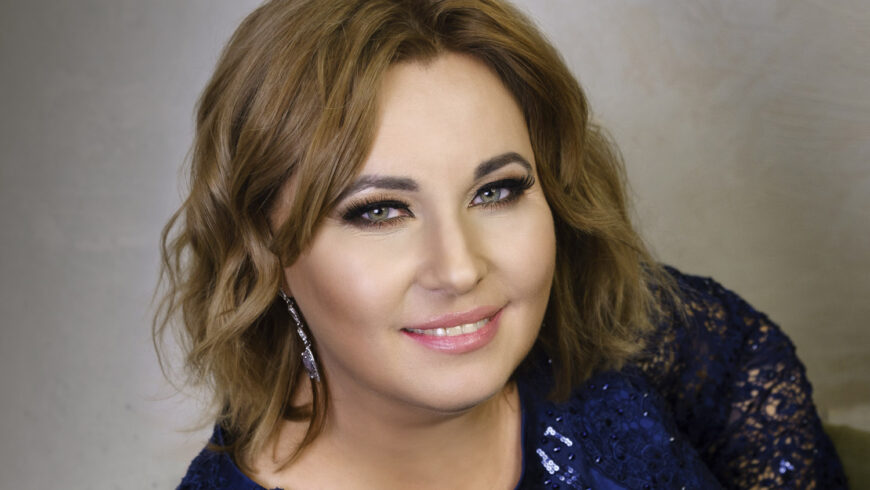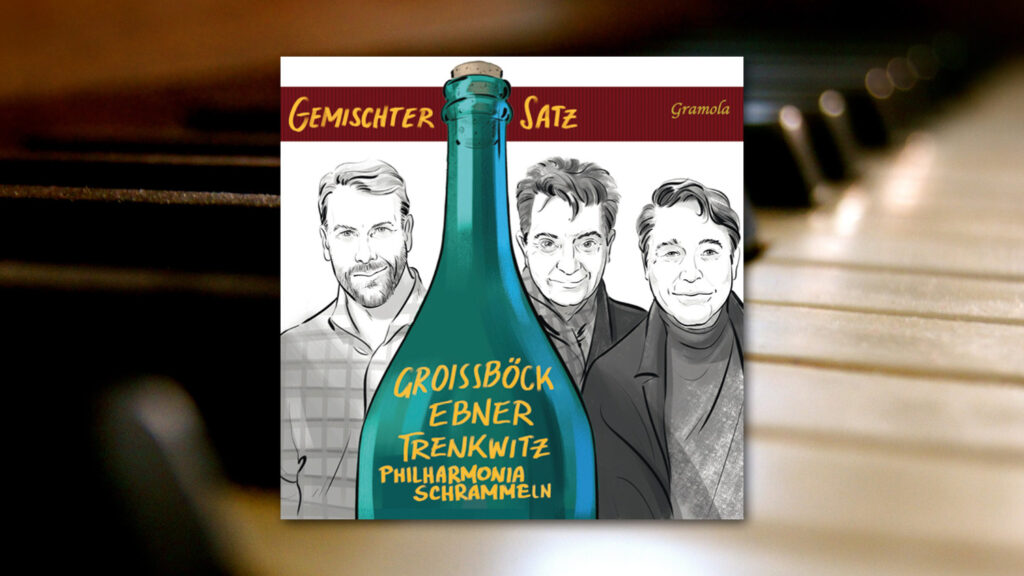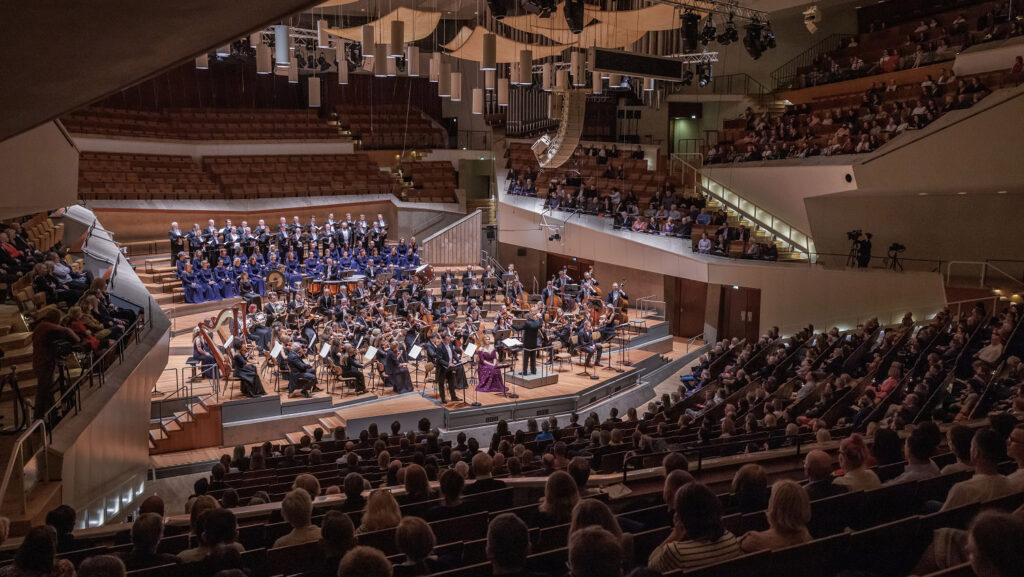Liudmyla instead of Anna – the new Turandot at the Met
Liudmyla Monastyrska would not call the role of Turandot her favorite one, it not even being part of her repertoire. Nevertheless, she did not say no when Peter Gelb, the General Manager of the Met, called her personally to ask if she would “take over”. That is for Anna Netrebko, whose political strategy of cat and mouse is currently making it impossible for the most well-known opera house in the world to contract with her
by Iris Steiner
Media attention was never the reason for her having taken up this profession. Liudmyla Monastyrska also makes a reserved impression in our Zoom interview, and despite her good knowledge of English, she allows a friend to translate for her. The fact that a Ukrainian singer, of all people, is replacing Anna Netrebko as Turandot at the Met in May increases the public pressure enormously even for this soprano who is used to success and has an international track record. All the more so since she last sang the role in public seven years ago and she admits that Puccini’s princess is not exactly her favorite role. “I just don’t understand this woman”, she says, “bitter and aggressive – thank God she finally shows feelings when Calaf kisses her.” One gets the impression that this role, for the shy and gentle-looking artist, is just as inappropriate as the situation in which she involuntarily finds herself at the moment. Monastyrska speaks to us from a living room in Warsaw, in self-imposed exile, while her parents and brother have remained in Kyiv and the two children are safe in Poland and Romania. “My whole soul is in my homeland and is very sad”, she says, “but physically I’m okay.”
Monastyrska travels all over the world, but still considers Kyiv her home. The center of her life is still there – at least it was until a few weeks ago, before Putin started bombing the country. She is in daily contact with her colleagues at the Ukrainian National Opera via Telegram and online. There are also new horror stories coming from there every day – and sometimes there is desperate hope. “Imagine the Kyiv Opera wanting to play again in April after more than a month of closure. In reality it is probably impossible, but no one there wants to give up. And as I have heard, our musicians go into subway tunnels and make music to cheer up the people there a little.” She knows the city’s cultural scene, was a member of the opera ensemble for many years, and made her stage debut there in 1996 as Tatjana in Tchaikovsky’s “Eugene Onegin” before she launched her operatic career. “Right now, all I can do is help my country by participating in benefit concerts and expressing my sense of belonging to Ukraine and by my loud protest.”
Anna and Liudmyla?
She knows that stepping in in New York for her Russian colleague Anna Netrebko, of all people, is attracting a lot of attention – and Liudmyla is grateful for the opportunity to sing this Turandot for Ukraine as well. “It is a great honor for me to be able to represent and present my country in this way.” However, she does not want to use the term “happy” because she feels too sad and angry. “In my opinion, artists who openly support the Putin system should not be given a stage. In my opinion, Anna explained her position far too late. A whole month without a statement from the number one of the opera world? That is intolerable for me.”
Are there actually parallels between Anna Netrebko and Liudmyla Monastyrska – maybe in terms of their voices? As expected, the careful question did not meet with great enthusiasm. “No, we’re not alike, not even in terms of our voices.” The answer comes promptly and harshly. “Anna is an outstanding singer with a great career and has many managers and consultants working with her. That is just not my world.” Shortly before the beginning of the war, both were alternately engaged for the role of Aida in Naples. Did you not meet there in person? “Of course I know Anna. She makes her own decisions, she is an adult. I would rather not meet with her at the moment, though.”
She does not know why Peter Gelb, General Manager of the world’s largest opera house, made a personal call to specifically choose Liudmyla Monastyrska. It can be assumed that her origins played a (political) role in this, but she remains modest and realistic, true to her nature. “Surely there would have been some very good alternatives with a Ukrainian background. I can only say that I am very proud that I was chosen.” However, we wanted to find out more about this, inquired and promptly received the following statement from Peter Gelb: “The fact that I asked Liudmyla is not because she is Ukrainian, but because I know that her expressive, dramatic voice is perfectly suited for this role – even if it is not in her current repertoire at the moment. In order to sing large Italian repertoire on the big stage of the Metropolitan Opera, a singer needs a stable and very powerful voice. Liudmyla had already proven this ‚Met suitability‘ several times before as Aida and Abigaille and sang both roles with great success at our house. The fact that she is from Ukraine is the icing on the cake. No more and no less.”
From Ukraine to the big global stages
Monastyrska made her European debut in 2010 as Tosca at the Deutsche Oper Berlin, one of her favorite roles and in which she can still be heard regularly to this day. In the years that followed, engagements as Aida and Tosca at the Opéra national de Paris and the Metropolitan Opera followed, there as well – together with Plácido Domingo in 2016 – as Abigaille in “Nabucco”. This performance was broadcast live to cinemas worldwide and was seen by 50,000 (!) visitors in a single performance in Germany and Austria. In the same year, she was heard as Aida at the Bavarian State Opera and at the Vienna State Opera under Simone Young, almost a year after her debut at the Salzburg Festival in 2015 in the new production of “Cavalleria rusticana” alongside Jonas Kaufmann. This was followed by engagements as Lady Macbeth and Abigaille at the Royal Opera House in London and at La Scala in Milan. And an Aida is on the agenda for this summer – this time in the Arena di Verona, “as far away from the war as possible”, as she puts it. “Even if it accompanies me everywhere.”
Zeffirelli’s splendid “Turandot” production of the Met – a favorite with the public since 1987 – certainly cannot heal her traumatic experience. On May 7, 2022, “Turandot” will be broadcast live in over 200 cinemas in Germany and Austria. Monastyrska calls it an important “statement engagement”, but she would generally prefer her own contracts, in which she, as she puts it, “is wanted from the start”. In this case, she knows about the effect – and tries to be pragmatic. The only time during our conversation that she seems almost cheerful. “I’ve got my work visa and hey, we’re talking about the Metropolitan Opera. It’s always a highlight to be able to sing there. So, let’s go!“
What would she like to say to a Vladimir Putin if given the chance? She is silent for a while, visibly struggling for words and composure – the answer that follows sounds well considered: “I have no words for Putin and I have been shocked for weeks. For me, he is a sick man and for us normal, peace-loving Ukrainians the situation is incomprehensible. We are in the 21st century – can you seriously just go and slaughter people?”
Dear Ms. Monastyrska, even Turandot’s icy character is changed by love. We wish for you and your country that this possibility is not confined to the opera stage.
Translated by Dagmar Hesse-Kreindler
This article is from Orpheus Magazine 03/2022, one of the leading German opera magazines since 1973.



